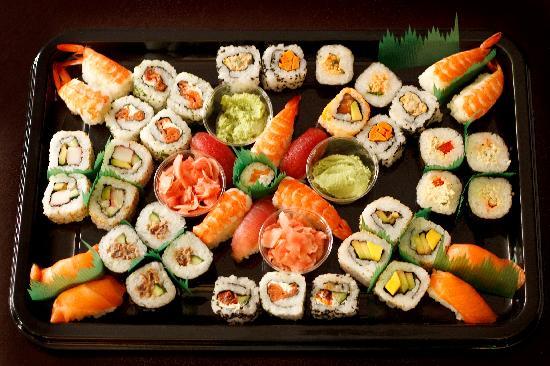Our body need food, water and oxygen to survive. With these three essential elements, life can be sustained. Out of these three elements, oxygen is obtained free of charge (imagine the consequence if it is charged per usage). This leaves us with the other two elements, food and water, which are the ones that actually cost us money in our everyday life (water cost practically nothing if considering cooking your own drinking water).
Image source: WaterBenefitsHealth
It is easy to fulfill these basic needs like food and water with little money to fuel our body in order to perform various activities that bring happiness to us. The energy we need in a day does not cost much because of the abundance of food we have. There are plenty of cheap and low cost food and water available nowadays due to advance in technology. We grow better food and in larger quantity.
The price of a typical meal ranges from RM 1 up to RM 100++ (fine dining). It is our choice whether to pay more or pay less for food with the same kind of nutrition. Why pay more for the same nutrition?
In order to live comfortably, we also need shelter. That also cost money. However, it can be obtained with little cost, for example, by renting a cheap room (or living in large family) and wearing low cost (but high quality) clothes to protect us from cold weather or sunshine. But for some, it cost more i.e. they want large house filled with luxury paintings.
It actually does not cost much to survive in everyday life. In fact, we can eat well and sleep well with little money.
But as soon as these basic problems of survival are solved, merely having enough food and a comfortable shelter is no longer sufficient to make people content. – Mihaly Csikszentmihalyi, author of “Flow“
Based on a book that I read, the standard of the food that we eat nowadays is comparable to the standard that once only the king in 16th century could afford. The quality of the food that we have from some prestigious restaurants is even better than the one consumed by the kings a few centuries ago.
Based on the above finding, most people live like a king nowadays.
I think if you wonder why you struggle financially, probably you are living like a king right now.
Depending on whether you want to live like a king by going out dinner at expensive restaurant or live an average life with normal food, your expenses could make a huge different. People could live for thousand years on “worse” food. Why you need to eat like a king?
You wouldn’t feel happier if you already living lavishly. Which cases do you think you will appreciate the food more: 1) eating at Sushi King everyday 2) eating average food and only go to Sushi King once in a while.
Invest wisely in these 2 essential life-supporting elements. Don’t overspend. Remember, the value is what you get, the price is what you pay. You can pay with little price but get high value in return in your everyday investment.
Consumption rate
One way to know whether your everyday investment is on the right track is by looking at your consumption rate: the higher the frequency of usage compared to price you pay for an item, the lower the consumption rate. Try to minimize the usage price in every area of your life and you would make a great investment in your life.
For example, you want to have lunch. Instead of having a RM 10 lunch, you go to a restaurant for a RM 100 meal, you just overpaid by RM 90.
In order to cure your hunger, between options A) RM 10 for a meal and B) RM 100 for a meal, which would you choose to reduce your consumption rate?
Another example. Ali has one pair of shoes that he wears everyday. He wears them till they are worn. So over the lifetime of the shoes, the cost per usage is low. However, Abu has 10 pairs of shoes where he only wears some of them occasionally. In this case, some of the shoes have very high cost per usage. Between Ali and Abu, who has the lower consumption rate?
A lot of bad investments will add up and destroy your net worth.
Another way to reduce the consumption rate is to think about maximizing the re-usability of an item: repeatedly extract value from the same object = saving at each usage.
Just like you buy a machine that can produce food. The more you use it, the more value you get from it.
Throughout history, the masters, people who have great achievements, are those good at focusing and doing the same thing. They don’t change area frequently. That’s how they become master. They extract the most value from the same thing. (A bit far fetch but you get the idea). If you keep changing or upgrading, you end up paying a higher price but you get the least value from the things you acquire. You end up way over paying for things that you don’t need. That is really, no doubt, a bad investment.
You should instead be buying things that are of high quality (probably with small price) that you will be using them frequently for a long time. Buying high quality things that you can reuse for your lifetime is an excellent investment, just like investing in quality stocks. That is a wise investment that you can make because you minimize your consumption rate. You minimize the cost per usage and maximize the re-usability of the item.
Result from my experiment: The power of investing in everyday life
I record my net worth every week for several years now to monitor my financial status. What I found surprise me.
Over the past one year, by applying the consumption rate concept to my everyday investment, I have a saving rates of 103.56% (from 7 November 2013 till 7 November 2014). This means that my gross income + expense after a year = gross income + 3.56% return. The expense is practically 0 like I never spend any money at all throughout the whole year. It also signifies that I keep every cent of my gross income after working for a full year.
Some part of the return is from stocks but it does not contribute much yet for this time since I am not an expert in stock investing.
The experiment shows the power of investing in everyday life.
Action required
We can plan, calculate and speculate on a lot of things. You can be an expert in finance or real estate or investment. You can have theories on how things work, you can have plan to save for 5 years and then buy for a house, etc. But what it matter is you to be able to take the right actions. You should not miss one of the key factors in maximizing your saving: reduce waste.
The action plan is this: whenever you pay, think about its cost per usage. Don’t over pay. That’s what I found the most effective investment strategy in everyday life. It’s my most effective and successful investment strategy so far.
Have a low cost life, it is much more sustainable. It also saves the earth and helps sustaining the economy, etc (I get inspired by listening too much from ted talks…) Think long term.
Do you live like a king/queen but feel that you are struggling financially? Probably you need to change your mindset and live like an average person and extract the most value from the available resources. Things will compound.
Do you invest wisely in your everyday life?

